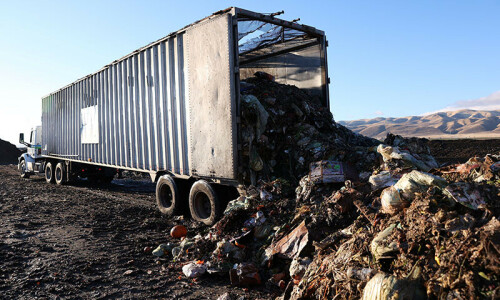ISLAMABAD: While 783 million people were affected by hunger and a third of humanity faced food insecurity, over one billion meals a day were wasted across all continents in 2022, according to the ‘Food Waste Index Report 2024’, released by UN Environment Programme to mark the ‘International Day of Awareness of Food Loss and Waste’, being observed on Sunday.
In 2022, there were 1.05 billion tonnes of food waste generated, including inedible parts, amounting to 132 kilograms per capita and almost one-fifth of all food available to consumers.
“Food waste is a global tragedy. Millions will go hungry today as food is wasted across the world,” said UNEP executive director Inger Andersen.
According to recent data, food loss and waste generates eight to 10pc of annual global greenhouse gas (GHG) emissions — almost five times that of the aviation sector — and significant biodiversity loss by taking up the equivalent of almost a third of the world’s agricultural land.
The toll of both food loss and waste on the global economy is estimated at roughly $1 trillion.
Urban areas are expected to particularly benefit from efforts to strengthen food waste reduction and circularity. Rural areas generally waste less food, with greater diversion of food scraps to pets, livestock, and home composting as likely explanations.
As of 2022, only 21 countries have included food loss and/or waste reduction in their national climate plans (NDCs). The 2025 NDCs revision process provides a key opportunity to raise climate ambition by integrating food loss and waste. The Food Waste Index Report underscores the urgency of addressing food waste at both individual and systemic levels.
Robust baselines and regular measurement are needed for countries to show changes over time. Thanks to implementation of policies and partnerships, countries such as Japan and the UK show that change at scale is possible, with reductions of 31pc and 18pc, respectively.
The report recommended that countries should use the Food Waste Index to measure food waste consistently, develop robust national baselines, and track progress. Very few countries have collected robust food waste data, which is essential in understanding the scale of the problem, in targeting hotspots, and in assessing the efficacy of interventions.
Published in Dawn, September 29th, 2024














































